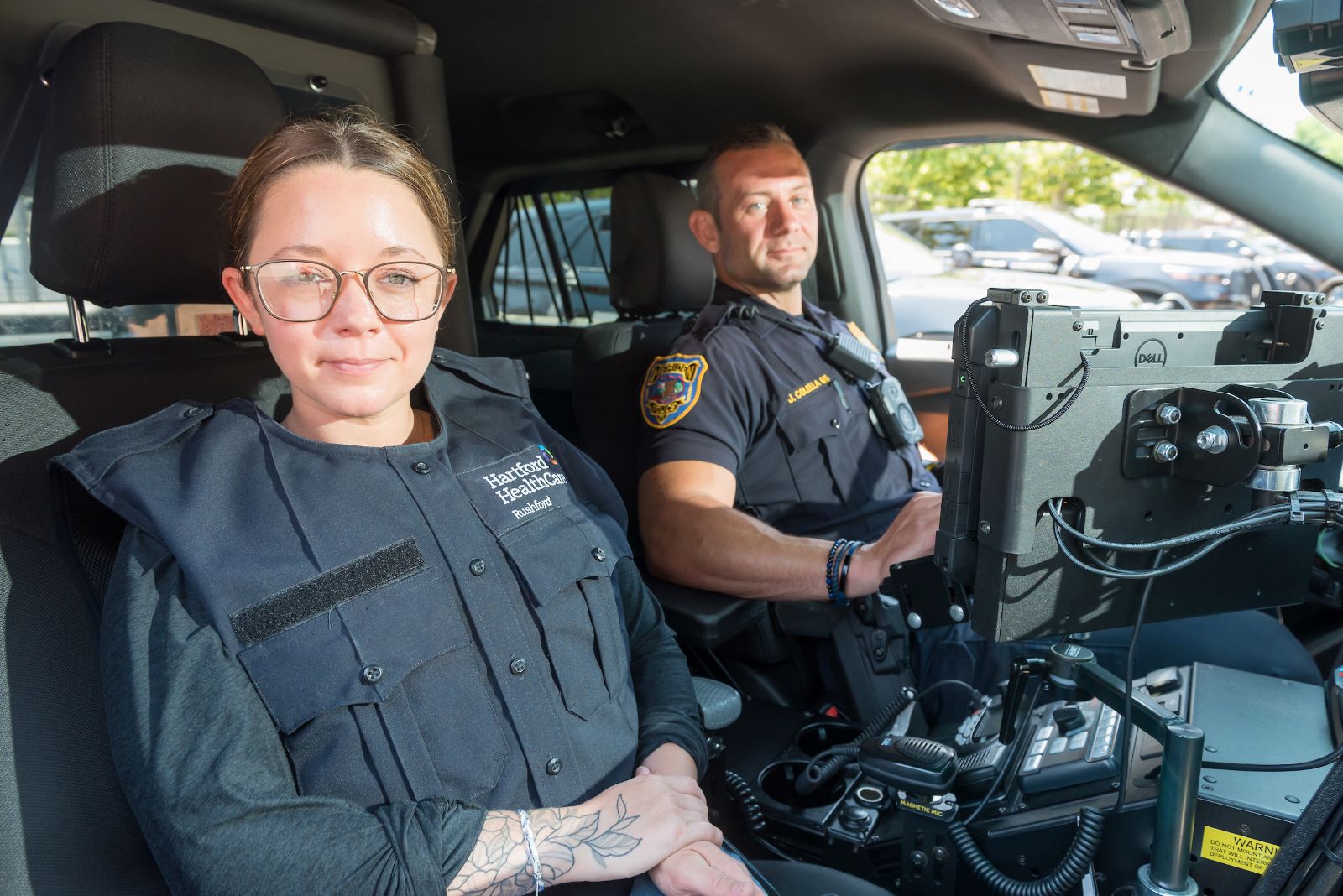<< Back
Rushford Partners With Meriden PD to Serve Crisis Needs

September 06, 2024
When there’s a mental health or substance-related crisis in Meriden, chances are Alisa Palmer-Winston will respond.
The social worker works for Rushford, part of Hartford HealthCare’s Behavioral Health Network (BHN) and is embedded full-time with Meriden Police Department, helping officers with people in crisis as part of Rushford’s ongoing collaboration with city health and police departments.
“This is another step forward in our partnership with Rushford,” says Meriden Police Det. Lt. George Clements Jr. “We rely on and leverage their clinical expertise and, with this addition, Alisa is there on scene with officers. She brings a whole new layer of service in real-time.”
Jessica Matyka, Rushford clinical director for crisis and acute community programming, notes this close relationship improves an individual’s chance of getting into a recovery program and succeeding.
“It allows for a holistic approach to public safety, where social workers can provide specialized support and resources to people experiencing mental health crises or other social challenges,” she says. “This integration marks a significant step forward in creating safer, more inclusive communities, where people receive the assistance they need and law enforcement can prioritize public safety, while addressing underlying social issues.”
Statistics demonstrate the need. In 2023, there were:
- 682 incidents related to mental health, substance abuse, homelessness and protective order investigations requiring mental health assessments
- 635 domestic violence calls outside the above categories
- 387 incidents involving crimes against persons
- 64 non-criminal death investigations
“That’s an average of 148 per month and that is just counting incidents not individuals,” Clements notes. “Sometimes multiple victims and witnesses can benefit from Alisa’s skills. Others require follow-up with victims.”
Palmer-Winston works first or second shift, riding with officers on patrol. The pair might respond to a call directly or the officer brings her where she’s needed. Situations include people struggling with thoughts of suicide or depression, domestic disputes and assisting crime victims.
“It can be anything from a phone call to meeting face-to-face,” she says. “Being able to connect with people during really difficult times in their life, being a resource for them and helping them connect to care makes a big difference. It’s hard, challenging work, but there’s real teamwork and that’s what will make this succeed.”
The work is an extension of the Meriden Opioid Referral for Recovery (MORR) project, a grant-funded partnership between the BHN, Rushford, City of Meriden and Meriden first responders to combat the opioid crisis.
“Adding social workers to police departments is an emerging practice in Connecticut and it made sense for us to do this given the strong partnership we already have with Meriden. We believe this will have a positive impact on the community and its citizens.” Matyka says.
Clements agrees.
“We aren’t medical or mental health professionals. To have that expertise sitting right next to our officers on these types of calls help fill gaps and offer services and help in ways we can’t,” he says.